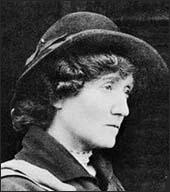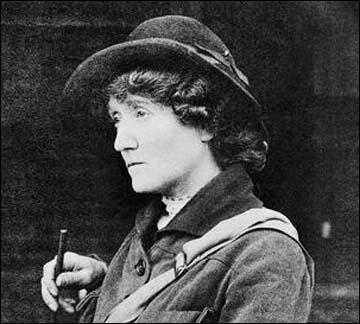Mabel Stobart

Mabel Stobart was born on 3rd February 1862. She married and lived in Africa and British Columbia before returning to Britain in 1907.
A supporter of women's suffrage, Stobart believed women would only get the vote when they demonstrated their ability to help defend the country against the feared threat from Germany. Stobart decided to form the Women's Sick and Wounded Convoy Troops, (WSWCT) an organisation that would help soldiers on the field of battle. In 1912 the WSWCT saw service in the Balkan War where they helped the Bulgarian Army.
In 1914 Stobart and Lady Muir McKenzie formed the Women's National Service League. This included women doctors, trained nurses, cooks, interpreters, and all workers essential for the independent working of a hospital of war.
On the outbreak of the First World War, Stobart and a unit of the Women's National Service League to Belgium where she set up a field hospital. Nearly captured by advancing German troops, Stobart returned to England. However, soon afterwards the Belgian Red Cross invited Stobart to establish a hospital in Belgium that was completely staffed by women.

Once the hospital had been established, Stobart went to the Balkan Front, where she served as commissioned major in charge of a hospital column. After the war Stobart wrote about her war experiences in Miracles and Adventures (1935).
Mabel Stobart died on 7th December 1954.
Primary Sources
(1) Mabel Stobart, The Daily News (5th August, 1914)
I, together with thousands of other women, feel intensely the iniquity, the barbarity, the unimaginative folly of this proposed war, in which we should fight against those who are not even our enemies. We unrepresented women, who shall have to take our share of the sacrifices demanded by war, realise that the whole trouble is due to the double standards of morality which still prevail in the male world. One standard of morality for women and another for men.
It is impossible at such a crisis to escape the conviction that until women are included with men in councils which are concerned with the morality of nations this double standard of morality - which tolerates murders when they are committed wholesale - is likely to prevail.

